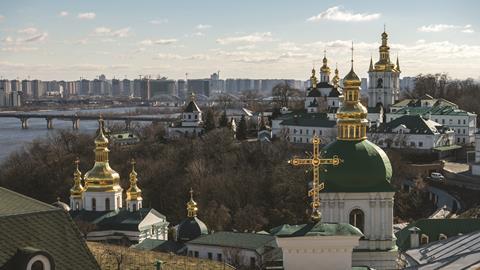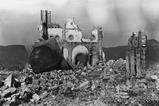As the world marks 12 months of the war in Ukraine, Professor Nick Megoran discusses the impact of conflict on the Church
The Russo-Ukrainian war has been a tragedy for the people of Ukraine. But it is also a tragedy for the Christian Church.
Ukrainian churches have been the direct target of violence. The Russian invaders and their local allies have persecuted non-Orthodox Christian communities. Buildings have been closed, literature and equipment confiscated, and church leaders kidnapped and murdered. In October 2022, Russian soldiers abducted 52-year-old Anatoliy Prokopchuk, deacon of a Pentecostal church in occupied Kherson, and his 19-year-old son Oleksandr. Their mutilated corpses were later found in woods.
In 2018, the Constantinople Patriarchate (orthodoxy’s unofficial HQ) recognised the independence of the Orthodox Church of Ukraine, which broke away from Moscow in response to Russia’s seizure of Ukrainian territory in 2014. This split the Ukrainian Church into pro-Kyiv and pro-Moscow factions. In retaliation, the Russian Orthodox Church severed ties with Constantinople. Following the 2022 invasion, many previously pro-Moscow Ukrainian parishes switched loyalty to Kyiv. Some of those that remain linked to Moscow have been targeted by Ukrainian security services.
Jesus’ final prayer for his people was “that they may be one” (John 17:22), but churches in Russia and Ukraine have paid scant attention.
The head of the Russian Orthodox Church, Patriarch Kirill, has strongly backed the invasion. Blessing everything from cruise missiles to Kalashnikovs, he has thrown the spiritual authority of the Church behind a war that he sees as a patriotic struggle against the godless West. Ukrainian Christianity has mirrored this to some extent, with priests blessing soldiers and sprinkling paramilitaries with holy water.
More on Ukraine
But not all Christians agree. In the early days of the invasion, a Russian woman was arrested outside a Moscow church for simply holding up the words: “Thou shalt not kill” (Exodus 20:13, KJV). In January, Vitaly Alekseenko, a Ukrainian Christian, was jailed for refusing the military draft. He cited Christ’s command to “love your enemies” (Matthew 5:44) in his defence.
Such acts of prophetic resistance are rare. Rather than discipling members to follow the radical teachings of the Prince of Peace, too many churches in Russia and Ukraine have been caught up in state nationalism.
But we in Britain can hardly claim the moral high ground. During the first world war, a British general famously said: “The Christian churches are the finest blood-lust creators which we have.” A century later, Westminster Abbey was full of soldiers and regimental banners for the funeral of Queen Elizabeth II; a spectacular mix of Church, nation and military.
But it wasn’t always like this. For centuries after the resurrection of Christ, his followers believed that when Jesus said “love your enemies”, he actually meant it. Churches did not allow their members to be soldiers. Marginalised and excluded from political power, Christians spread the gospel across the world through word, love, prayer and action.
Over time, the Church traded its commitment to peace for a seat at the table of national politics. This may have given us a public profile, but blessing wars and crusades has turned many against the Christian faith. The war in Ukraine is just the latest example of that.






































1 Reader's comment